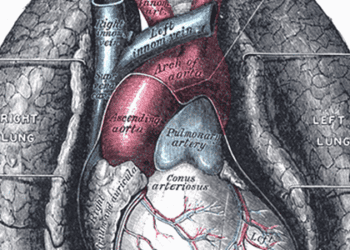Reduced pneumococcal vaccine schedules non-inferior to WHO recommendations
1. In this cluster-randomized controlled trial, it was found that a pneumococcal conjugate vaccine (PCV) schedule involving a single primary dose plus a booster (1p+1) was noninferior to previously recommended schedules (3p+0 and 2p+1) in children under three years of age.
2. PCV10 demonstrates evidence of cross-protection against serotype 6A.
Evidence Rating Level: 1 (Excellent)
Study Rundown: PCVs provide significant protection against Streptococcus pneumoniae, a bacterium responsible for substantial childhood morbidity and mortality. The World Health Organization (WHO) recommends two vaccine schedules: three primary doses during early infancy (3p+0) or two primary doses followed by a booster after 9 months of age (2p+1). However, cost has been a significant barrier for many countries in implementing these schedules. To address this, a 2016 PCV catch-up campaign was conducted for children in Nha Trang, Vietnam, a region with no prior PCV use. This study aimed to evaluate whether the 10-valent PCV (PCV10)—protective against serotypes 1, 4, 5, 6B, 7F, 9V, 14, 18C, 19F, and 23F—administered in a 1p+1 or 0p+1 schedule was noninferior in controlling vaccine-serotype carriage compared to the WHO-recommended schedules. Following the campaign, the risk of vaccine-serotype carriage in infants and toddlers was markedly reduced across all age groups and schedules. While no decrease in serotype 6A carriage was observed five months post-campaign, a reduction was noted during the October 2020 analysis, 3.5 years after the campaign. At that point, noninferiority analysis confirmed the 1p+1 schedule was comparable to the 2p+1 and 3p+0 schedules, with the 0p+1 schedule also noninferior, though less protective against serotype 6A. The study’s limitations included the potential impact of COVID-19 on disease prevalence, possible inter-cluster contamination due to the single-city design, and limited long-term follow-up. Despite these limitations, the findings support the noninferiority of reduced PCV10 vaccination schedules.
Click here to read the study in NEJM
Relevant Reading: Fractional Doses of Pneumococcal Conjugate Vaccine — A Noninferiority Trial
In-Depth [cluster-randomized controlled trial]: This cluster-randomized trial assessed the effectiveness of reduced PCV10 vaccination schedules (1p+1 and 0p+1) compared to WHO-recommended schedules (3p+0 and 2p+1) following a PCV catch-up campaign in Vietnam. Among 27 communes in Nha Trang, three were excluded from the intervention, and the remaining 24 were randomized to one of the four vaccination schedules. Children under three years old with no contraindications or prior PCV exposure were invited to participate. Of 12,850 invited children, 12,683 (98.7%) received at least one dose, and 12,129 (94.4%) completed their assigned schedule. The study included 12,347 children from the catch-up campaign and 3,181 additional children vaccinated afterward. Baseline data showed pneumococcal carriage in 23.0% of infants and 36.6% of toddlers, with PCV10 serotypes present in 52.1% and 50.0% of carriers, respectively. Five months post-campaign, PCV10 serotypes were found in 34.1% of infant carriers and 31.9% of toddler carriers. By October 2020, these numbers dropped further to 14.4% in infants and 10.3% in toddlers, representing a 77.1% reduction in PCV10 serotype carriage compared to baseline. This decline was consistent across all vaccination schedules and age groups. Among infants, PCV10 serotype carriage rates were 1.8% in the 1p+1 group, 1.5% in the 2p+1 group, and 1.3% in the 3p+0 group, with similar trends in toddlers. The 1p+1 schedule was noninferior to both 2p+1 (difference, 0.3 percentage points; 95% CI, -1.6 to 2.2) and 3p+0 (difference, 0.5 percentage points; 95% CI, -1.4 to 2.4) schedules, with similar findings for toddlers. The 0p+1 schedule was also noninferior in both age groups, though it provided less protection against serotype 6A. By October 2020, PCV10 vaccination was associated with a 34.9% reduction in the risk of carrying serotype 6A, with diminished protection in the 0p+1 group. No significant safety concerns or adverse events related to vaccination were identified. These results suggest that reduced PCV10 schedules provide a cost-effective, noninferior alternative to current WHO-supported schedules.
Image: PD
©2024 2 Minute Medicine, Inc. All rights reserved. No works may be reproduced without expressed written consent from 2 Minute Medicine, Inc. Inquire about licensing here. No article should be construed as medical advice and is not intended as such by the authors or by 2 Minute Medicine, Inc.







